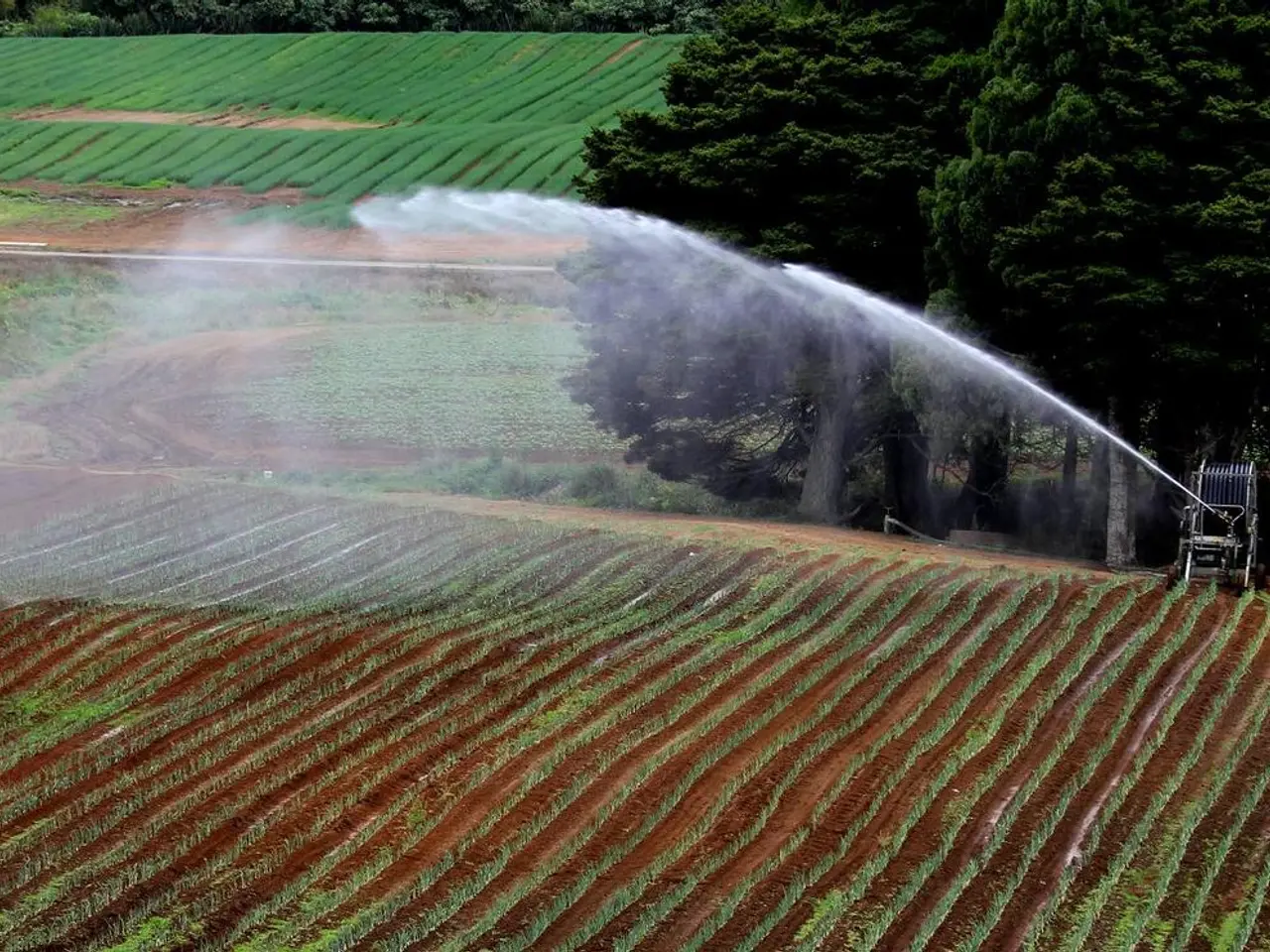Nigeria Introduces First Industrial Biochar Plant for Reducing Carbon Dioxide Output
Biochar Carbon Removal Leads Carbon Mitigation Efforts in Africa
Biochar, a stable form of carbon produced from biomass, is playing a significant role in Africa's carbon removal efforts. This innovative technology, which locks carbon in soil for hundreds to thousands of years, is not only helping to combat climate change but also improving crop yields and reducing fertilizer costs.
A prime example of this is Releaf Earth, a climate-tech startup that recently launched Nigeria's first industrial-scale biochar carbon removal facility in Cross River State. This facility, which converts palm kernel shells into biochar, aims to remove 40 kilotonnes of CO2e by 2030, with plans to scale up to 100 kilotonnes.
The pilot project in Cross River showed a 23% boost in crop yields, demonstrating the potential of biochar to revolutionize agriculture in Africa. The verified carbon credits generated from these efforts will be issued via the Riverside Registry, providing financial incentives for scaling biochar practices across the continent.
Biochar offers several advantages in the African context. It improves soil fertility and nutrient efficiency, particularly on degraded or acidic soils common in many African regions. This enhancement helps increase crop yields and resilience against climate impacts. Moreover, biochar enhances water retention, a crucial aspect for drought-prone areas, contributing to agricultural sustainability and food security.
Biochar projects also generate meaningful co-benefits for rural livelihoods. Decentralized biochar production and supply chains create job opportunities, including gender-equitable ones, in these communities. Furthermore, biochar supports waste management and sustainable agriculture by transforming organic residues into valuable carbon-rich soil amendments.
However, challenges remain in the implementation of biochar projects. These include feedstock availability, cost competitiveness, clear policies, and measurement, reporting, and verification (MRV) frameworks for carbon accounting. Despite these challenges, the potential benefits of biochar make it a promising strategy for Africa to simultaneously advance climate mitigation, environmental restoration, food security, and economic development.
Tito Jankowski, CEO of AirMiners, believes that Africa could become the most affordable and largest producer of biochar. With backing from Y Combinator, Breakthrough Energy Ventures, and others, Releaf aims to build a continent-wide network of biochar facilities. This network could tackle climate change, restore soil health, and build resilience for millions of African farmers.
As the world races to meet global climate targets, biochar carbon removal (BCR) can significantly contribute to the effort, particularly in Africa. To meet the Paris Agreement goals, carbon dioxide removal (CDR) efforts must scale up from current 2 gigatons to 7-9 gigatons per year by 2050. Biochar, with its long-term carbon sequestration potential and additional agricultural benefits, could play a crucial role in achieving this goal.
Smallholder farmers could also benefit financially from biochar projects. With verified carbon credits generated from these projects, farmers could see their incomes rise by over 50% thanks to better harvests and the sale of these credits. This financial incentive could encourage more farmers to adopt biochar practices, further increasing its impact on climate change and agriculture in Africa.
In conclusion, biochar carbon removal offers a promising solution for meeting global climate targets while providing climate-smart agricultural benefits. With its potential to improve soil health, increase crop yields, generate jobs, and contribute to waste management and sustainable agriculture, biochar is leading the charge in carbon removal efforts in Africa.
In the African context, technology such as biochar not only contributes to carbon removal efforts for climate change mitigation but also enhances the agricultural sector. For instance, Releaf Earth's industrial-scale biochar facility in Nigeria aims to generate financial incentives through the sale of verified carbon credits, providing smallholder farmers with a means to boost their incomes. Moreover, the advancement of technology in environmental science, like biochar, could potentially position Africa as a significant producer, contributing to the global effort of scaling up carbon dioxide removal (CDR) to meet Paris Agreement goals.




